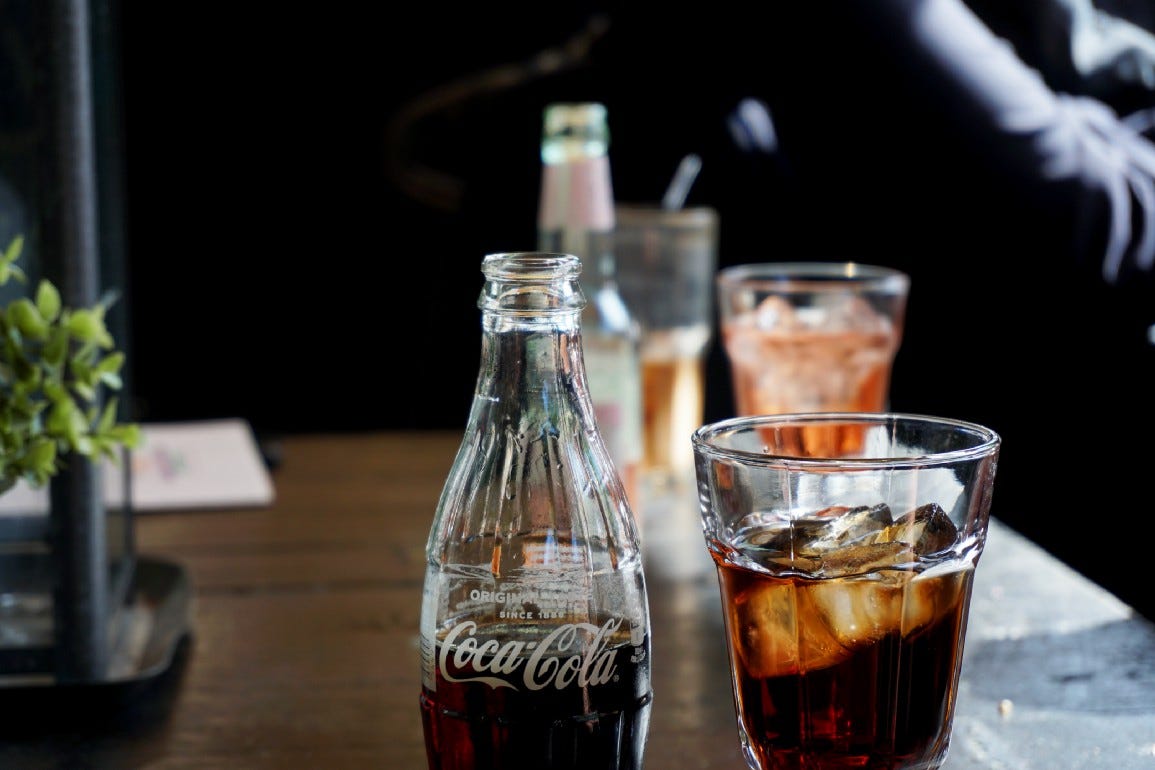The Immiscibility Between Cristiano Ronaldo And Coke.
Why does Cristiano Ronaldo dislike Coke that much?
There’s a good reason why Cristiano Ronaldo doesn’t touch Coke anymore these days.
When he attended a press conference at the Euro 2020 games and saw 2 bottles of Coke on the table, he channelled his inner Elon Musk to remove the Coke bottles and replace them with water.
The point being that he knows what not to feed his body with if he wants to be playing soccer and competing at a high level into the twilight of his professional career.
He leads an extremely boring lifestyle with regards to what he eats and drinks, as his teammate at Juventus said:
Interestingly, his team-mate at Juventus, Daouda Peeters, who made his debut last season against Cagliari, gave an insight as to what the former Manchester United attacker eats.
“He always eats the same thing: broccoli, chicken and rice,” Peeters told HLN.
The Belgian further confirmed that Ronaldo isn’t into soda drinks and intakes ‘agua (water)’ at regular intervals to keep himself hydrated.
“Litres of water, no Coca-Cola. Cristiano wants to win always and everywhere. He makes young players grow. He really involves you,” said the 22-year-old Belgian.
But when you’re this boring…
When you do things right, people won’t be sure if you’ve done anything at all.
Why are sugary drinks that bad?
It’s quite simple. Just about everyone has some reasoning power to figure that the overconsumption of sugar in our diet can lead to issues with diabetes. However, Type 2 diabetes is more of an insulin resistance issue brought about by the overconsumption of sugar.
We’re drowning in all that sugar from the deluge of processed foods surrounding us at the supermarkets, anyway.
The thing is that while glucose does serve as a source of energy that our cells can manufacture biochemical energy from, we don’t need too much of it.
The Coca-Cola website does list the sugar content in a 20 fluid-ounce bottle (591 mL) to be 65 grams.
Let’s assume that all these 65 grams are derived from table sugar (sucrose). Even though a majority of it should be derived from fructose, as in high fructose corn syrup.
If we did have all sugar being derived from sucrose…
The molecular weight of sucrose is 342 grams per mole.
If we had 65 grams of sucrose, we’d be looking at 65/342 = 0.19 moles of sucrose.
Now, sucrose consists of a glucose and a fructose molecule that are fused together. Our digestive system can break them down into glucose and fructose to end up with 0.19 moles of glucose and 0.19 moles of fructose.
If our digestive system were to absorb all 0.19 moles of glucose and distribute it into the blood evenly…
The human body contains approximately 5 litres of blood.
The 0.19 moles of glucose, evenly dissolved within all 5 litres of blood, would result in a concentration of 0.19/5 = 0.038 moles per litre, or 38 millimoles per litre (mM).
This isn’t such a big problem if we’re able to use it up all quickly.
The problem is if we can’t.
Because when one has diabetes, it just means that their fasting blood glucose concentrations are greater than 7.0 mM glucose.
Translation:
If you have diabetes, stay the hell away from regular, sugary, carbonated drinks if you do value your life.
Of course, replacing sucrose with fructose doesn’t do us any more benefits.
Because while we do see that diabetes is an issue regarding the unnecessary accumulation of glucose in our blood, we have to see how and why it ends up as such.
When we switch our sweeteners to fructose and overdose on it, we’d still be likely to develop diabetes.
Because whether we’re looking at fructose or glucose, we’d be seeing that these sugars can be easily converted into glyceraldehyde.
Glyceraldehyde is reactive and can cause damage to different biomolecular structures within our body, which triggers an inflammation response. A higher than usual, uninhibited inflammatory response triggers the cells in the body to resist the insulin signal come feeding time (also known as insulin resistance).
In addition, all this sustained biochemical damage also does lead to a reduced rate of the body’s healing and recovery processes, which would mean a prolonged experience of the muscle aches and pains associated with a highly intense exercise workout.
If I were a professional sports player, my recovery rate is crucial to my team’s success, especially if I am a highly skilled player.
Such as Cristiano Ronaldo.
Hence religiously avoiding all those sugary beverages suits him much better.
While I’ll never be able to play like Ronaldo, and my life choices result from my own discretion (or indiscretion), I can also make the wise choice of cutting out excess carbohydrates from my diet.
It would be much better off for all the cells in my body. Including my brain, as Alzheimer’s has been related to diabetes!
Do feel free to share this article and hit the “subscribe” button to get more updates about the science concepts in nutrition and health, all deconstructed nicely for your convenient perusal!





Thanks for your response! Soft drinks companies do not actually state much information in what they put in their contents, how would a consumer know the amount of impurities within the “zero sugar” drinks? And how do we advice those who indulge in them, since they claim that those are as good as drinking water - since there’s “zero sugar”?
How about zero sugar soft drinks?